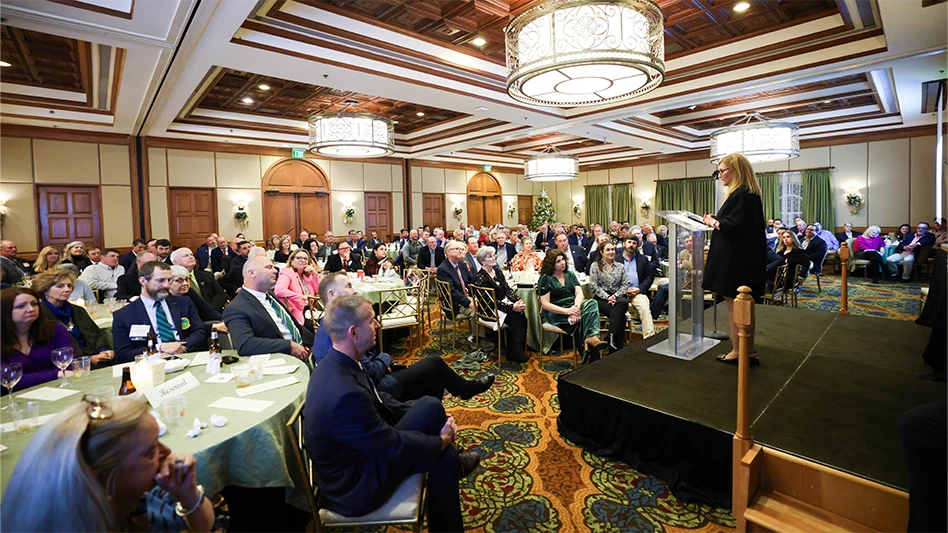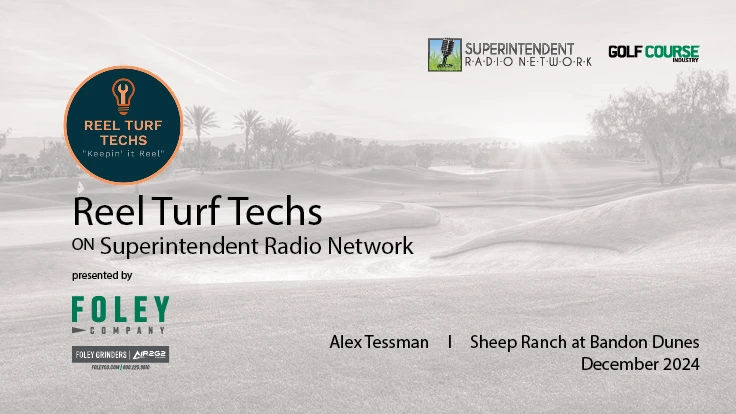|
|
Many golf courses have lightning warning systems consisting of a detector and horns or sirens to warn golfers of approaching lightning. The detector – manufactured by Course Alert, ThorGuard and WxLine – is usually located on the pro shop roof and monitors cloud and cloud-to-ground lightning. Horns/sirens are located throughout the course. An 18-hole course may have two to five horns/sirens depending on layout and topography. The system can sound an alarm automatically when lightning is detected – some have a 20-mile range – or manually triggered by the pro shop staff. Wires installed throughout the course, or less-expensive and more-convenient solar panels, power the horns/sirens. Warning systems have been around for decades and are well-proven for golfers, but you can also use lightning detection systems to protect your irrigation system from electrical damage. When the proper equipment is added, the lightning detection system can initiate an equipment shutdown procedure. Protection is accomplished by installing detectors, transmitters, sequencers and relays to shut down vulnerable electrical equipment, such as controllers and central computers, through the use of contact closures. Keep in mind that a lightning detection system that automatically protects your irrigation system will be more expansive than just a system that warns through horns/sirens. And you may want two detectors as opposed to one. The number of detectors is dependent on course politics. Normally, the detector is at the pro shop or clubhouse and operated and monitored by the golf staff. Since the communication is wireless – up to three miles with some manufacturers – you can still disconnect the irrigation components through the use of actuators at the maintenance facility. If the maintenance staff and the pro shop staff do not communicate well, then you may want a completely separate system for the protection system with its own detector located on the maintenance facility roof. The pro shop would have a detector to control the horns/sirens and the maintenance facility a detector to disconnect the irrigation wiring. The two detectors would not interact at all. The level of equipment protection you want the system to provide varies. If desired, it will automatically:
The system automatically restores all connections following safe conditions, and measures and records the number of surges during a storm. With wireless communication, adding equipment is easy although not inexpensive. Disconnecting the various equipment is accomplished through a series of relays that shut off, isolate and/or shunt to ground the power surge. Basically, it keeps the wiring, which may be carrying an electrical charge, from reaching the central computer interface, computer and field controllers. Although the lightning protection system is pretty much independent of the irrigation manufacturer’s control system, some attention must be made to the type of irrigation control system installed at your course. For example, a conventional field controller/satellite system will need to be configured differently for protection than a two-wire system. If lightning is frequently damaging your irrigation system and your parts budget is out of control, a lightning detection/protection system may be a solid investment. And if your course doesn’t already have one, you get the added benefit of a lightning warning system.
Brian Vinchesi, the 2009 EPA WaterSense Irrigation Partner of the Year, is president of Irrigation Consulting Inc., a golf course irrigation design and consulting firm headquartered in Pepperell, Mass., that designs irrigation systems throughout the world. He can be reached at bvinchesi@irrigationconsulting.com or 978/433-8972. |

Explore the November 2014 Issue
Check out more from this issue and find your next story to read.
Latest from Golf Course Industry
- Golf Construction Conversations: Reed Anderson
- ’Twas the Night Before Christmas (on turf)
- Twas the Night Before Christmas (the turf version audio)
- Advanced Turf Solutions and The Aquatrols Company release soil surfactant
- Heritage Golf Group acquires North Carolina courses
- Editor’s notebook: Green Start Academy 2024
- USGA focuses on inclusion, sustainability in 2024
- Greens with Envy 65: Carolina on our mind






